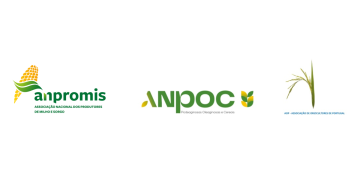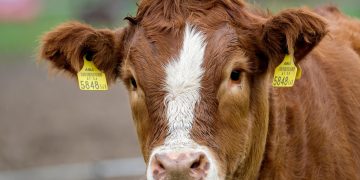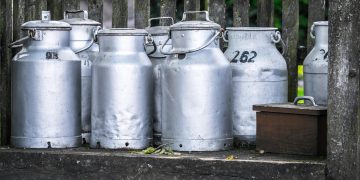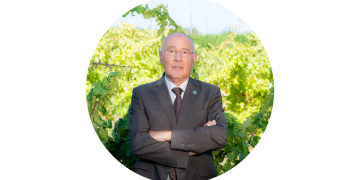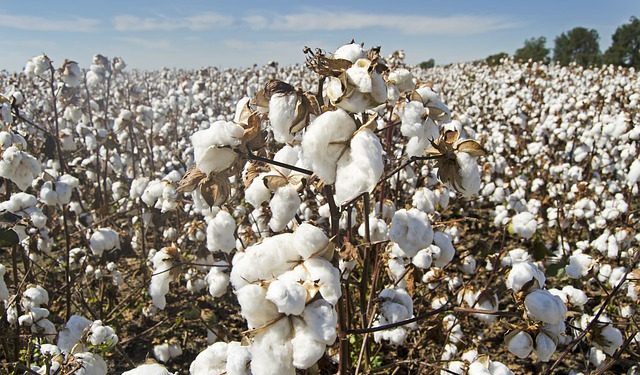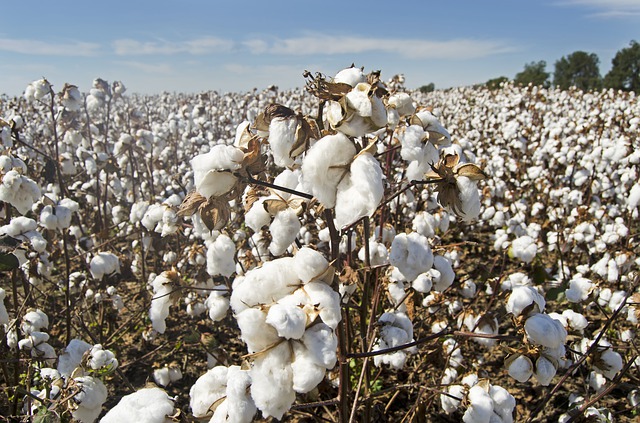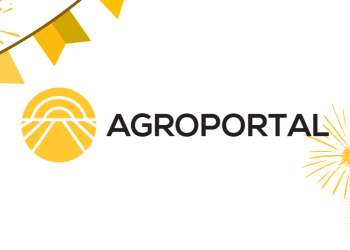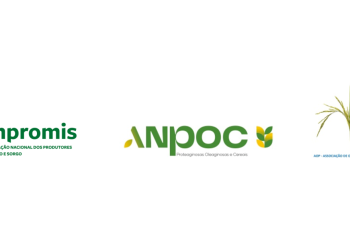“Wow, wow.” I couldn’t stop saying wow as we caught a first glimpse of a field covered with what appeared to be white flowers. It seemed huge, but in reality, it was only 2.5 acres of genetically modified Bt cotton. Still, it was big, given that the average farmer in Africa owns and tills just one acre of land. But most profound were the white flowers, which turned out to be cotton bolls ready for picking.
We are at Johnson Mwai’s home in Mbabaine, Kirinyaga county in central Kenya. A quick “hi” to his wife, who was packing maize into sacks, and our tour starts. Mwai’s 10-acre farm is well-kept. Bruvellia trees line the perimeter and a recently tilled lot lies idle, waiting for the rain when it will be planted in maize. On another end are mango trees, but the larger part is dedicated to cotton — specifically Bt cotton.
“I have been growing cotton since 1963 and cannot stop,” Mwai, 72, says with a slight smile. But still I need to understand why he made the switch from conventional to Bt cotton. He tells me it was due to Daniel Magondu, an Alliance for Science trainee, farmer leader and our guide for the day.
“He talked to us about the benefits of this new cotton,” Mwai says. “He told us that Bt cotton will not be attacked by the bollworm, which will give us a higher yield and more savings on pesticide since I would spray less. I decided to give it a try.”
The Bt cotton variety that Mzee Mwai and other farmers in Kenya grow was released by the government in 2020 in a bid to revive the cotton industry. This variety has been genetically improved to resist infestation by the African bollworm, the single most destructive cotton pest in Kenya. Pest infestation accounts for 45 percent of on-farm losses.
Earlier, we had visited Bernard Wachira’s farm in Makuti village, Kirinyaga sub-county. Wachira grows Bt cotton on an acre, dedicating the rest of his land to mangoes, bruvellia, cows and mire. Both Wachira and Mwai are representative of other cotton farmers in the county. They are all mixed-crop farmers, sub-dividing their land into small parcels to grow various crops. This ensures a continuous flow of income and also acts as insurance in case one crop fails.
Miraa, the local name for khat (Catha edulis), is a high value crop that provides income for ongoing needs such as health care, food and education. Maize is a staple food and cotton a cash crop that is harvested four times a year. The bruvellia trees, with their wide branches, offer welcome shade from the heat. They’re also useful for firewood and constructing temporary shelters for livestock.
The typical farm setting in Kirinyaga nullifies the narrative that GM farming always involves monocrops on large acreage and thus cannot thrive without eradicating Africa’s typically smallholder, mixed farming system.
To support farmers like Mwai and Wachira, the government gives out free Bt cotton seed through a company called Mahyco. However, according to Magondu, a long-term cotton farmer and biotechnology advocate, in Kenya “cotton seed has always been free. It is not peculiar to Bt cotton seed.” Some 1.5 kilograms of seed are typically needed to plant an acre.
The big difference is seen at harvest. Farmers growing conventional cotton will yield 500 to 700kg per acre, while those growing Bt cotton will harvest 1,500 to 2,000kgs from the same acre. With a kilogram of cotton going for ksh50, a Bt cotton farmer will earn ksh75,000 (US$656) — triple the amount earned by his conventional counterpart.
It is worth noting that cotton provides two harvests per season, with the second harvest yielding more, so a farmer can earn an average of US$1,312 from an acre of Bt cotton per season.
Like all workers, Wachira and Mwai smile happily when they talk about pay day. “It is not like the olden days when we would sell our cotton and wait to be paid months later,” Wachira told us. “Today, we have collective market days. All farmers in my neighborhood bring their harvest at a spot outside my farm and we call the buyers. They come, weigh and pay instantly via Mpesa – a mobile phone money transfer service.” The day we visited, Mwai had a store full of harvested cotton and the farm was blossoming, beckoning him to harvest more.
Though a Bt cotton farmer earns an extra $437 per acre, that is not the only advantage. Germination of Bt seed is almost 98 percent from planting only two seeds per hole, according to both Mwai and Wachira. However, five to six seeds of conventional cotton are typically planted per hole to increase germination rates, which are usually just 50 percent. So, a conventional farmer will need more seed at planting time.
Bt is also early maturing, flowering at three months and ready for harvest at about five months. Furthermore, Bt cotton is drought-tolerant. Magondu, Wachira and Mwai agreed that although cotton is generally a drought-tolerant crop, the Bt variety can survive on less rainfall than its conventional counterpart.
Since Bt was engineered to resist the African bollworm, it offers superior pest resistance. Still, farmers will need to spray for other pests two to three times in a season, compared to nine to 12 times — or every week for three months — for conventional varieties. Therefore, Bt cotton farmers save money on both the purchase of pesticides and labor costs of applying them, with the reduced spraying benefitting farmer and environmental health.
Magondu informed us that cotton is now considered an old man’s crop. When ginneries collapsed due to low production, most farmers naturally moved on to new crops. Today, Kirinyaga is known more for rice than cotton. The few who persisted in cotton growing have now grown into old men, with Wachira the youngest at 54 years old. Anything that reduces the intensiveness of labor, such as fewer pesticide sprays, is most welcome. Mwai can spray a little, but usually needs to hire labor since all of his children left the farm and are managing families of their own.
Alliance for Science Global Leadership Fellows Patrick Muruiki and Kennedy Oguyi, alongside Magondu, will soon train farmers on Bt cotton with an objective of attracting younger ones.
As we left Kiriyanga, we saw huge swathes of idle land testifying to Magondu’s passion for encouraging more farmers to adopt Bt cotton. “Since rice cannot grow well in dry lands, cotton is these farmers’ best bet since it is drought-tolerant. I now have a few farmers and will continue encouraging others to adopt Bt cotton,” Magondu said.
As we leave the villages behind and approach Mwea town, the defunct ginneries are both a pitiful and hopeful sight. Hopeful, because the Kenyan government supported the commercialization of Bt cotton in a bid to revive the cotton industry. So, though it will take time to renovate the ginneries and get the machines roaring, production will again ramp up, making fabric from home grown cotton.
By Patricia Nanteza
O artigo foi publicado originalmente em Cornell Alliance for Science.


